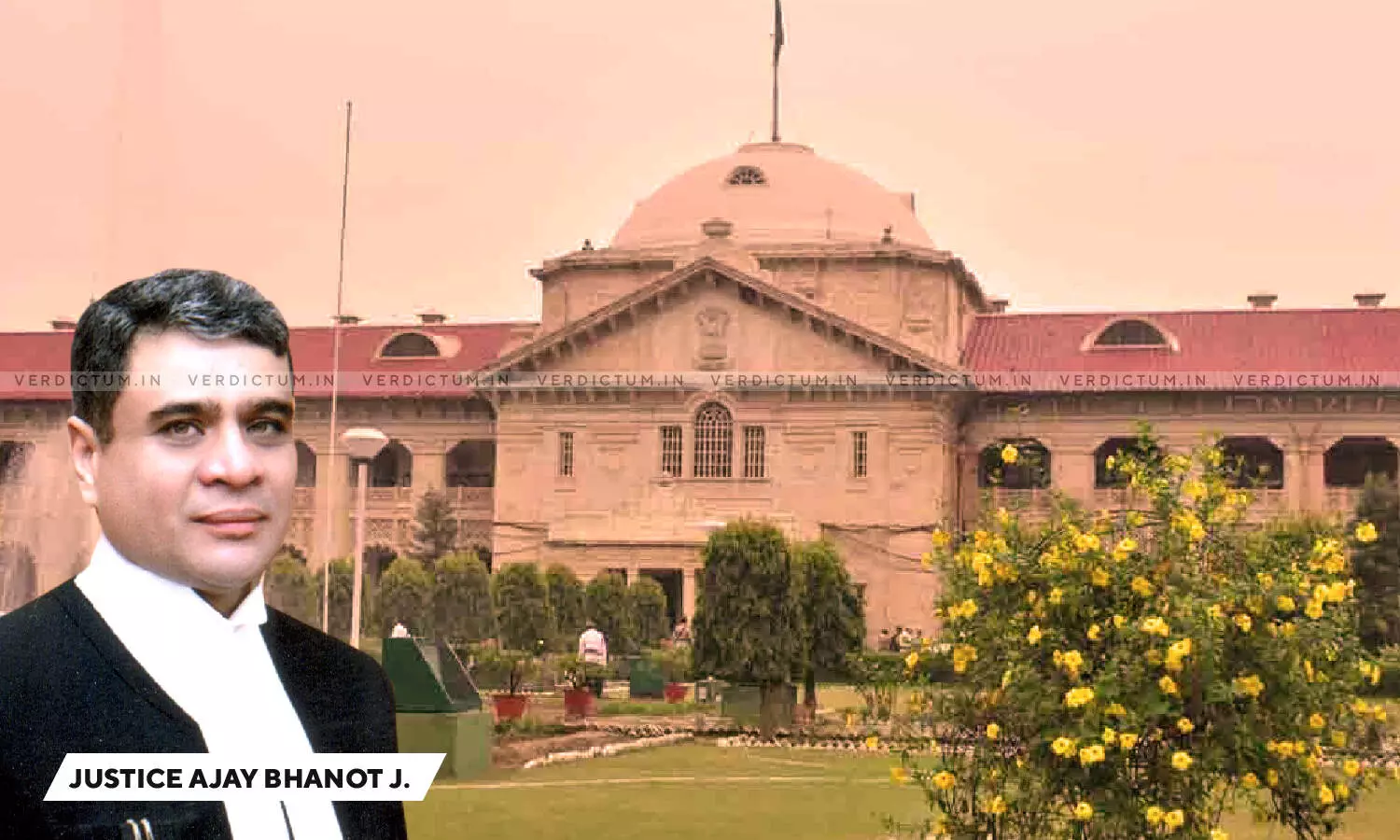
Justice Ajay Bhanot, Allahabad High Court
Entitlement Culture Takes Root In State Counsel Appointments, Favoring Scions Of Influential Families: Allahabad High Court
 |
|The UPSRTC’s counsel misled the labour court, causing wrongful closure of proceedings filed by a deceased driver’s family.
The Allahabad High Court has raised serious concerns over what it termed an “entitlement culture” that dominates the appointment process of legal counsels to State-run corporations.
The remarks came in the context of a petition filed by the family of a deceased driver of the Uttar Pradesh State Road Transport Corporation (UPSRTC). The family was seeking justice after a legal blunder occurred. The High Court had earlier remanded their case to the labour court after setting aside an ex-parte award. However, UPSRTC’s counsel misled the labour court by erroneously stating that the High Court had allowed the Corporation’s petition, leading to the closure of the proceedings.
A Bench of Justice Ajay Bhanot held, “Appointment of meritorious counsels by a fair and transparent procedure is central to good governance of a government corporation and is consistent with the mandate of constitutional law. Hitherto, an entitlement culture has taken root in appointments of counsels for State corporations where only scions of influential families are given opportunities to represent State corporations.”
The Court added, “Counsel of the aforesaid class rarely get a look in when appointments of State counsel or counsel for the Corporations are made as they are not able to curry any influence with powers that be. Modes of appointment of counsel which accord weight to accidents of inheritance and neglect achievements of merit cannot be countenanced in State Corporations.”
Advocate Yogesh Kumar Vaish appeared for the petitioners and Advocate Sheo Ram Singh appeared for the respondents.
The Court described the incident as a direct consequence of professional negligence on the part of the Corporation's appointed counsel at the labour court. It linked this failure to the broader systemic issue of appointments being driven by nepotism and influence rather than professional merit.
The Court added, “The failure of the State instrumentalities to discern merit in such class of counsels, can be disheartening to young first generation lawyers who are neither connected politically nor belong to families which are positioned high up in the power pyramid. Such an environment prevents members of the Bar from developing and contributing to the rule of law.”
Criticizing the current mode of appointments, the Court said that offices in State-run legal panels are being “appropriated by those who can peddle influences in the corridors of power.” It added that these appointments have seriously compromised the quality of legal representation offered by State corporations. In many cases, such appointed counsel do not even appear in court themselves and instead delegate matters to others, causing serious lapses in representation.
“The unjust nature of the system has serious adverse consequences on governance by law. The justice delivery system becomes weak and unable to serve justice to the common citizens due to systemic deficiencies,” the Court warned.
The Court strongly advocated for a complete overhaul of the current appointment process. It called upon State instrumentalities to implement a transparent and merit-based selection procedure for legal counsels. To ensure fairness, the Court recommended that officials of the Corporation should discreetly observe court proceedings and assess advocates based on their performance, competence, and integrity.
The Court suggested that selection of counsel can only be done by independent and dispassionate observance of court proceedings by officials of the Corporation who are regularly present incognito in court.
Furthermore, it recommended, “The procedure thereafter demands a rigorous system of checks and balances into the professional competence and integrity of counsels. This may also require a formal interface with the authorities concerned. However, selection methods are matter of details which the authorities can evolve based on the institutional experience as well.”
In response to the Court’s observations, the Managing Director of UPSRTC assured that the Corporation is committed to ensuring that appointments will be based on merit, and that equal opportunities will be provided to all deserving lawyers, including first-generation professionals.
“A system which adopts transparent procedures, promotes merit and gives a fair look in to young first generation lawyers while appointing counsels to represent UPSRTC in Courts has to be devised by the Corporation,” the Court added.
The Court directed that a meeting of the UPSRTC Board be convened to formulate a comprehensive scheme addressing the issues raised. This scheme is to be finalized and presented to the Court by the next date of hearing, scheduled for September 22.
Cause Title: Smt. Jubeda Begum & Anr. v. UP State Road Transport Corporation & Anr.
Appearance:
Petitioners: Advocate Yogesh Kumar Vaish
Respondents: Advocates Sheo Ram Singh, Sunil Kumar Misra